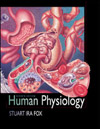 |  Human Physiology, 7/e Stuart I Fox,
Pierce College
Physiology of the Kidneys
Internet Activities
Normal Renal Physiology
(http://www.ppol.com/brg/BRGcambells.html)
Learn more about the nephron, the functional unit of the kidney.
Questions:
A. Describe the structure and function of a nephron.
B. What is a glomerulus? |
 |  |  | Control of Sodium, Potassium, and Water Balance
(http://server.physiol.arizona.edu/Physiology/Instruct/95PE-CGroves/CtrlNaKH20.html)
Read about the relationship between sodium, potassium, and the body's fluid balance.
Questions:
A. What is aldosterone?
B. Describe the connection between angiotensin and aldosterone. |
 |  |  | Kidney Stones in Adults
(http://www.niddk.nih.gov/health/kidney/pubs/stonadul/stonadul.htm)
Information on kidney stones is presented.
Questions:
A. What are kidney stones?
B. What are the symptoms associated with kidney stones?
C. What can one do to prevent the recurrence of kidney stones? |
|



 2002 McGraw-Hill Higher Education
2002 McGraw-Hill Higher Education